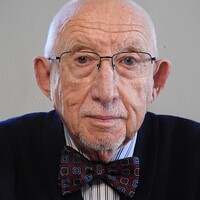President Donald Trump is building what will become one of the greatest snow-colored pachyderms in the history of the United States.
Some of the nation's biggest tycoons are going to pay for this ballroom, which will look like the box that the rest of the White House came in — a statement often made about the Kennedy Center looking like the container the adjacent Watergate complex came in.
Those favor-seeking tycoons won't be around to maintain the building as it stands mostly empty through the decades. Buildings that stand empty deteriorate rapidly. This piece of megalomania, expressed in stone, concrete and gold leaf, will be a burden to taxpayers.
Its ostensible purpose is for state dinners, where heads of state we as a nation want to flatter are dined. They should be called state ingratiation events.
When the president of the United States gives you a state dinner, you are exalted, whether it is haute cuisine in a gilded neoclassical building that looks like a 19th-century railroad station or in a tent. The office of the president doesn't need gold leaf and vaulted ceilings to embellish it.
"Location, location, location," say the realtors, and there's the rub. The White House is, by design, inaccessible.
I can say this with authority because for years I had a so-called White House hard pass and could gain entry quite easily. Even with it, my personal belongings and I had to pass through scanners at the visitor gates.
If you don't have a hard pass, you will have a hard time. You need an escort, and that must be arranged. Things lighten up a bit for events such as the Christmas parties. If you want to be there in time to have your picture taken shaking hands with the president, get there extra early.
The White House gates are a nightmare, and sometimes precleared names are lost mysteriously in the computer system. This happened to a reporter who worked for me who was invited to a press picnic held on the South Lawn during the Clinton administration. The poor fellow had to stand outside the gate like an untouchable while the rest of us got through.
Eventually, he got in. President Bill Clinton — who had an extraordinary ability to find a discomforted person in any situation and make them feel good — put his arm around the reporter in no time. When you have had difficulty getting into the White House, you mostly just feel rejected. The Secret Service makes a person waiting to be cleared for entry at the gates feel inferior or implies that they are up to no good.
My wife, Linda Gasparello, a fully accredited White House correspondent at the time, used her influence to get the crooner Vic Damone, who had an appointment, past the implacably suspicious gatekeepers. He was nearly in tears of frustration from the way he was treated.
The envisioned shimmering excess at 1600 Pennsylvania Avenue won't lend itself to being used for charity events or non-White House galas. It will be just too difficult to get in.
Washington isn't short on big, fancy spaces. I believe the biggest (besides armories and hangars) is the ballroom of the Walter E. Washington Convention Center. That room can seat over 2,700 and hold 4,600 for non-dinner events.
The Trump Ballroom would accommodate 1,000, we are told, presumably seated. So, it is too small for one kind of event and possibly too big for other events that might take place at the White House, if the attendees can get through the security barriers.
Washington isn't London or Paris. It isn't overstocked with grandiose ceremonial structures built by kings and emperors for their own aggrandizement. Instead, it has fun spaces that are pressed into service for formal affairs, such as the Spy Museum, the National Building Museum or the Air and Space Museum, in keeping with a nation that prizes its citizens over its leaders.
It seems to me that it is wholly appropriate for the United States to show national humbleness, as befits a country which threw off a king and his grandeur 250 years ago.
I have always thought that the tents put up for state dinners at the White House had a particularly American charm — a modest reproach to the world of dictators and fame-seekers, an unsaid rebuke to ostentation.
Llewellyn King is executive producer and host of "White House Chronicle" on PBS. His email is [email protected]. To find out more about Llewellyn King and read features by other Creators Syndicate writers and cartoonists, visit the Creators Syndicate website at www.creators.com.
Photo credit: Nils Huenerfuerst at Unsplash






View Comments